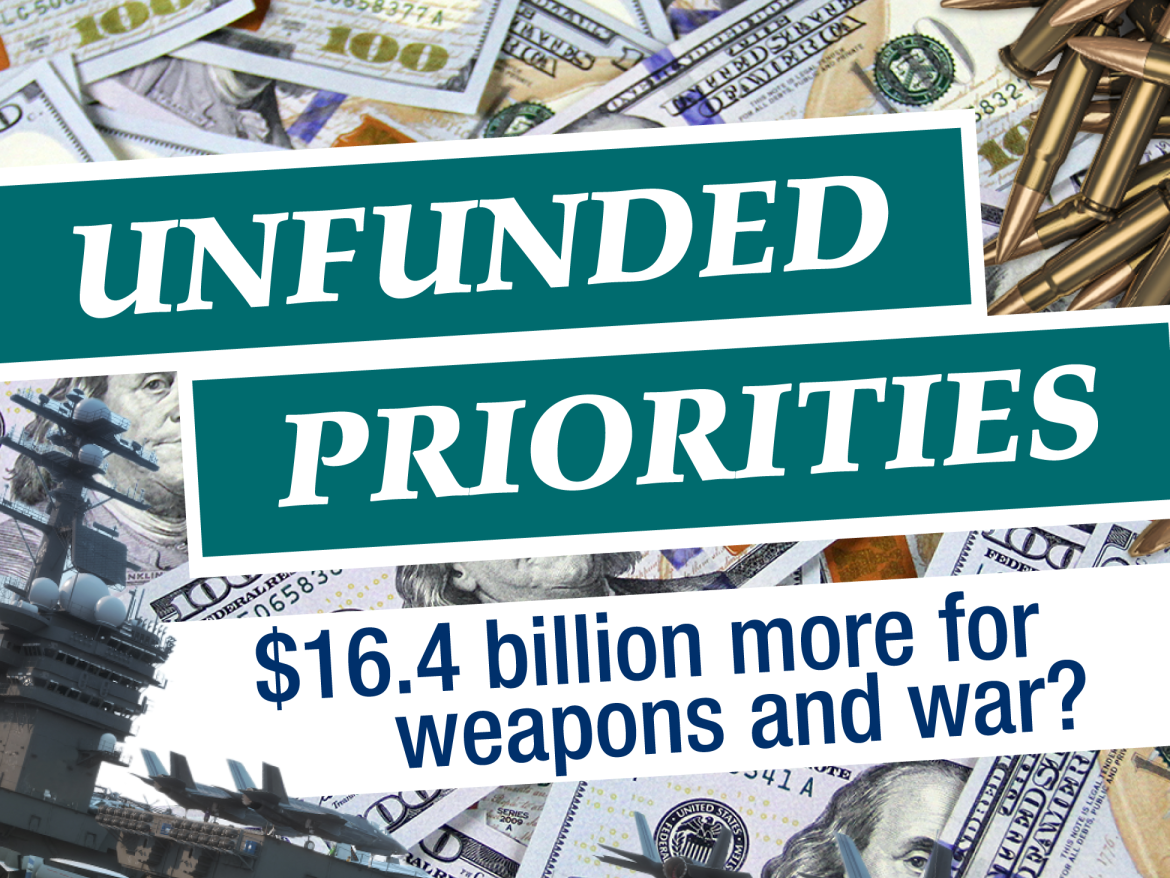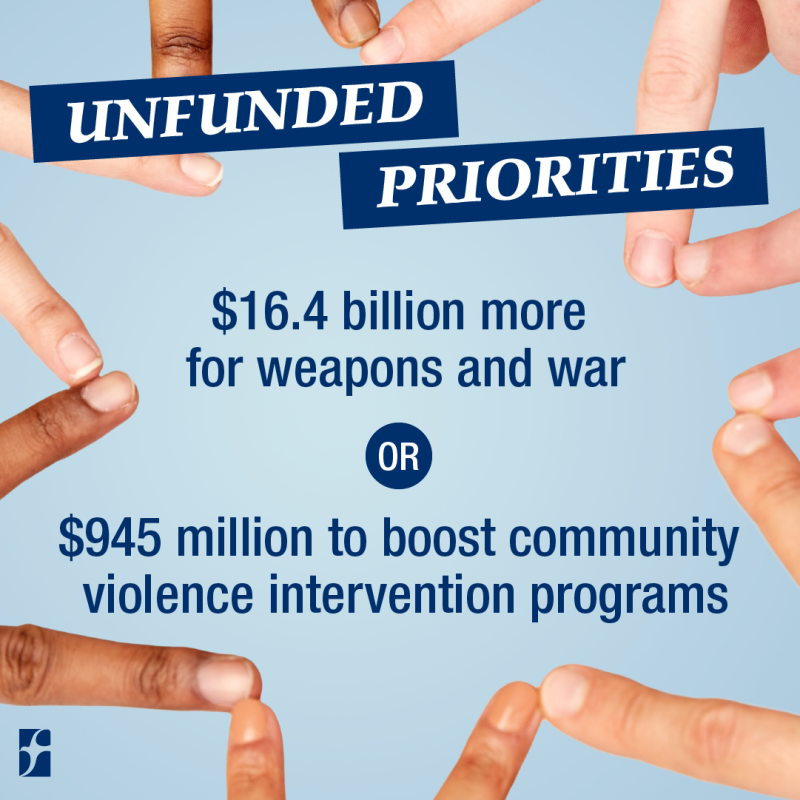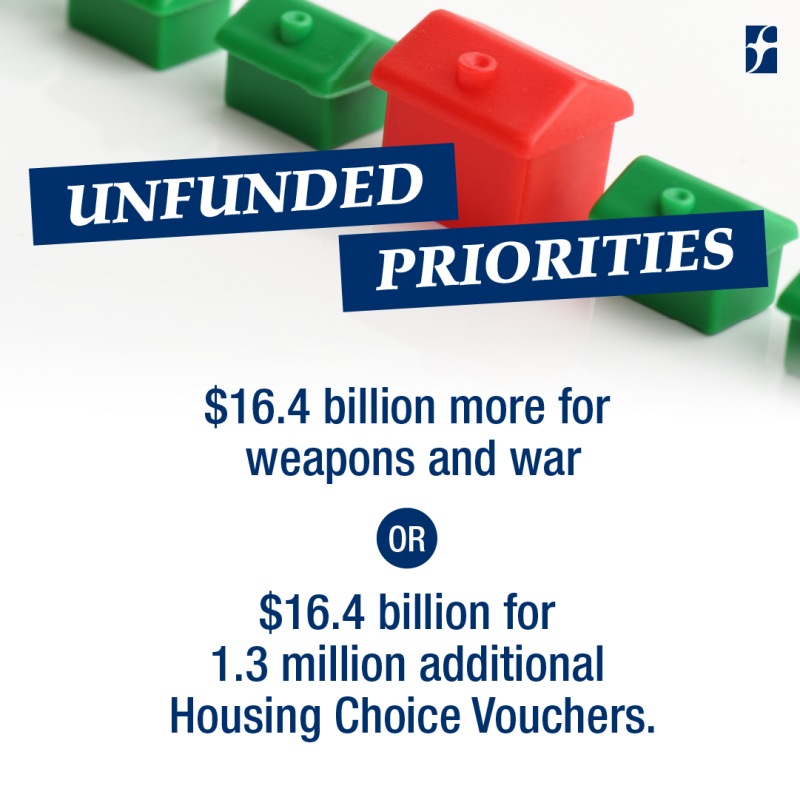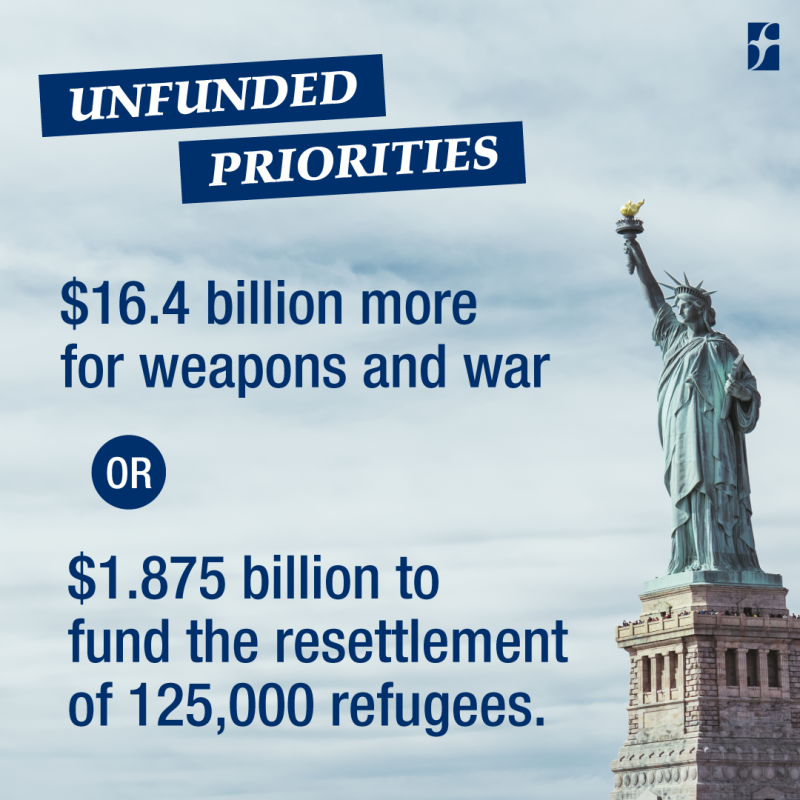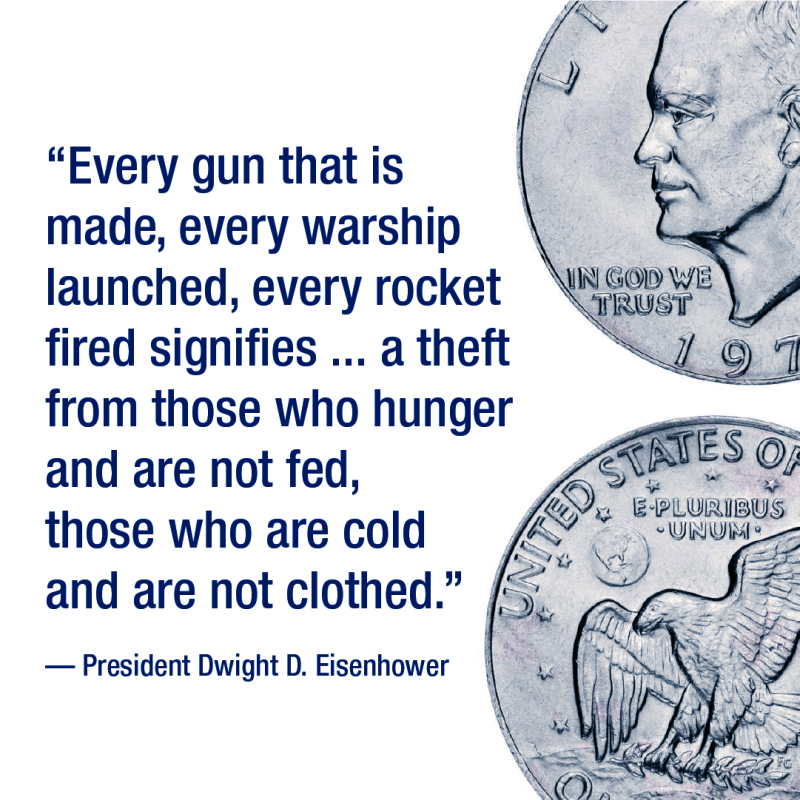Each year, Congress requires the Pentagon to draw up a wish list of weapons that the administration didn’t ask for, known as the “Unfunded Priorities List.” This year, the Pentagon is requesting more than $16.4 billion above the President’s $886 billion defense budget request for FY 2024.
These lists offer a backdoor for boosting already excessive defense spending, a practice that has received bipartisan criticism. Even the Pentagon is on record opposing the Unfunded Priorities List and urging Congress to “reconsider this approach.”
President Dwight D. Eisenhower famously said, “Every gun that is made, every warship launched, every rocket fired signifies, in the final sense, a theft from those who hunger and are not fed, those who are cold and are not clothed.”
Instead of giving the Pentagon and weapons contractors an additional $16.4 billion to fund their wish list for weapons and war, the American people deserve to get their own unfunded needs met. This year, FCNL’s People’s Unfunded Priorities List highlights four key areas where these additional funds could be better spent supporting human needs.
Community Violence Intervention
Invest in Effective Community Violence Intervention Programs, like Violence Interrupters
Cost: For $945 million, Congress could significantly boost community violence intervention programs, reducing gun violence nationwide.
Gun violence is a public health crisis that disproportionately affects low-income Black and brown communities. Community violence interventions (CVIs) like violence interrupter programs address the root causes of gun violence and prevent conflict before it starts. CVIs have been shown to have substantial positive economic and social benefits for entire communities, yet they face severe budget cuts this fiscal year.
Justice reform experts estimate that investing in CVI programs at a rate of $45,000 per homicide that has occurred in a city would result in a “sizeable reduction in violence.” In 2021, approximately 21,000 firearm homicides were reported in the United States. We cannot accept this level of violence and loss as the status quo. By investing at least $945 million in CVI programs, Congress can save lives and meaningfully decrease gun violence in hundreds of communities nationwide.
Housing Assistance
Significantly Increase Housing Choice Vouchers and Reduce Homelessness
Cost: For $16.4 billion, Congress could provide an additional 1.3 million Housing Choice Vouchers.
Our country is experiencing a housing crisis made worse by systemic racism. Black Americans experience homelessness at a rate of 3:1 compared to the general population. Programs like Housing Choice Vouchers seek to ensure low-income individuals and families can access housing through rental assistance.
Vouchers reduce homelessness and lift more than a million people above the poverty line. The program gives families a choice about where to live and has been shown to positively impact children’s long-term development. Living in neighborhoods with more resources allows low-income renters to access better educational and health resources.
We all have the right to a safe home. The U.S. government must tackle the crisis of homelessness head-on.
Currently, only 25% of all eligible people receive needed housing assistance. An additional $16.4 billion would fund about 1.3 million more vouchers, providing many more households with vital housing assistance.
Refugee Resettlement
Fund Refugee Resettlement
Cost: For $1.875 billion, Congress could fund the resettlement of 125,000 refugees.
The U.S. refugee resettlement system is a core pillar of the nation’s commitment to provide protection and refuge to persecuted communities. Refugee settlement services include assistance for necessities like housing, food, clothing, job training, and case management. These programs suffered detrimental cuts under the Trump administration, and drastic cuts are threatened for FY 2024 and FY 2025.
Studies show that the average yearly resettlement cost for a refugee is approximately $15,000. $1.875 billion would fund the resettlement of 125,000 refugees. An investment on par with the Pentagon’s request of $16.4 billion would sustain that rate of resettlement for more than eight years. With unprecedented global refugee needs, the U.S. government could offer critical migration assistance by funding its refugee resettlement accounts to support the resettling of thousands of families.
Nutrition Assistance
Fully Fund the Special Supplemental Nutrition Program for Women, Infants, and Children (WIC)
Cost: For $7.3 billion, Congress could fully fund the WIC program.
The Special Supplemental Nutrition Program for Women, Infants, and Children (WIC) provides food assistance, counseling on healthy eating, breastfeeding support, and other critical services to low-income pregnant and postpartum parents, infants, and young children. Adequate nutrition during pregnancy and the first years of life is essential for a child’s physical and cognitive development. Research shows that WIC participation leads to healthier births, more nutritious diets, better preventative care, and improved educational outcomes for children.
Rising food prices and higher participation rates put WIC at risk of funding shortfalls that could leave some eligible families without access to the program and force benefit cuts for the first time in years. Current spending bills in the House and Senate would deny or cut WIC benefits for 700,000 to 5.3 million parents and young children.
Congress needs to provide an estimated $7.3 billion to fully fund WIC so it serves all eligible families while maintaining the current healthy food benefit level. $16.4 billion is enough to more than double that funding need.
